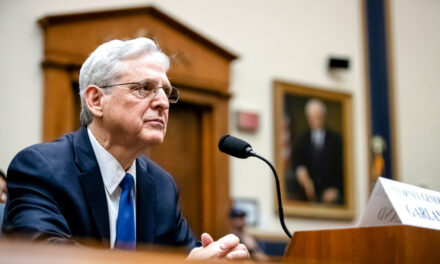We support our Publishers and Content Creators. You can view this story on their website by CLICKING HERE.
G7 countries pledged to continue ’taking measures against actors in China’ that significantly help Russia’s war machine.
PUGLIA, Italy—The leaders of the Group of Seven (G7) expressed their commitment to addressing China’s unfair trade practices and its support for Russia’s military efforts in a statement released on the second day of their summit.
The G7 leaders expressed “deep concern” at Beijing’s support of Russia’s industrial defense base, stating that it enables Russia’s illegal war in Ukraine.
“We call on China to cease the transfer of dual-use materials, including weapons components and equipment, that are inputs for Russia’s defense sector,” reads a draft summit communiqué reviewed by The Epoch Times.
G7 leaders also pledged to continue “taking measures against actors in China” that significantly help Russia’s war machine, including banks and other institutions in China that “facilitate Russia’s acquisition of items for its defense industrial base.”
Another major issue discussed at the summit is China’s overcapacity problem. In the communiqué, the leaders said China’s “non-market policies and practices” undermine “workers, industries, and economic resilience and security” in G7 countries.
“We will strengthen diplomatic efforts and international cooperation, including in the WTO, to encourage fair practices and build resilience to economic coercion,” the draft communique said.
“We will continue to take actions, as necessary and appropriate, to protect our workers and businesses from unfair practices, to level the playing field and remedy ongoing harm.”
China’s harmful tactics that undermine international rules and norms, particularly the recent industrial overcapacity problem, were a major focus at this year’s summit.
Chinese companies are rapidly seizing market share in strategic industries such as solar panels, wind turbines, steel, and EVs. Recently, the U.S. and European governments have expressed alarm about China’s excess capacity, largely fueled by massive government subsidies. They are concerned about the overcapacity problem impacting the development and innovation of industries in other countries.
“We further call on China to refrain from adopting export control measures, particularly on critical minerals, that could lead to significant global supply chain disruptions,” the draft communiqué said.
The leaders also raised concerns about the human rights situation in China, particularly forced labor practices in Tibet and Xinjiang, as well as Beijing’s suppression of autonomy in Hong Kong.
“China’s opaque and accelerating expansion of its nuclear arsenal” was another source of concern stated in the draft communique.
As with last year’s communique, the G7 leaders reiterated the importance of “peace and stability across the Taiwan Strait” and urged a peaceful resolution of cross-Strait issues. They also expressed serious concern about the situation in the East and South China Seas and underscored their strong opposition to “any unilateral attempt to change the status quo by force or coercion.”

 Conservative
Conservative  Search
Search Trending
Trending Current News
Current News 







